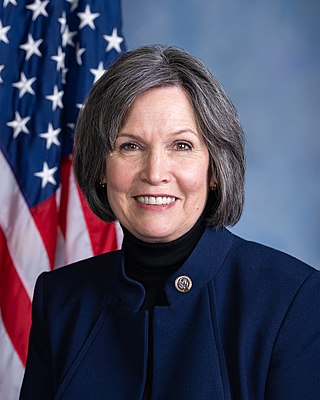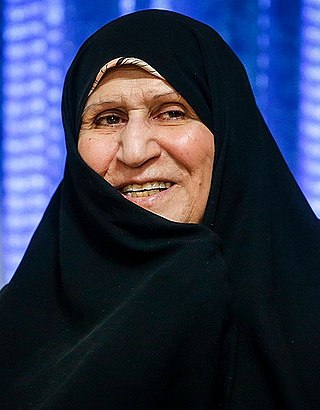
Palestinians are an Arab ethnonational group native to the region of Palestine.

The West Bank, so called due to its location relative to the Jordan River, is the larger of the two Palestinian territories that comprise the State of Palestine. A landlocked territory near the coast of the Mediterranean Sea in the Levant region of West Asia, it is bordered by Jordan and the Dead Sea to the east and by Israel to the south, west, and north. Since 1967, the territory has been under Israeli occupation, which has been regarded illegal under the law of the international community.

The Israeli–Palestinian conflict is an ongoing military and political conflict about land and self-determination within the territory of the former Mandatory Palestine. Key aspects of the conflict include the Israeli occupation of the West Bank and Gaza Strip, the status of Jerusalem, Israeli settlements, borders, security, water rights, the permit regime, Palestinian freedom of movement, and the Palestinian right of return.

The occupied Palestinian territories, also referred to as the Occupied Palestinian Territory and the Palestinian territories, consist of the West Bank and the Gaza Strip—two regions of the former British Mandate for Palestine that have been occupied by Israel since the Six-Day War of 1967. These territories make up the State of Palestine, which was self-declared by the Palestine Liberation Organization in 1988 and is recognized by 146 out of 193 UN member states.

Betty Louise McCollum is an American politician serving as the U.S. representative for Minnesota's 4th congressional district, serving since 2001. She is a member of the Democratic-Farmer-Labor Party (DFL). McCollum's district centers on St. Paul, Minnesota's capital city. She is the second woman elected to Congress from Minnesota. McCollum became the dean of Minnesota's congressional delegation in 2021.
The one-state solution is a proposed approach to the Israeli–Palestinian peace process. It stipulates the establishment of a single state within the boundaries of what was Mandatory Palestine between 1920 and 1948, today consisting of the combined territory of Israel and the State of Palestine. The term one-state reality describes the belief that the current situation of the Israeli–Palestinian conflict on the ground is that of one de facto country. The one-state solution is sometimes referred to as the bi-national state, owing to the hope that it would successfully deliver self-determination to Israelis and Palestinians in one country, thus granting both peoples independence as well as absolute access to all of the land.
Issues relating to the State of Israel and aspects of the Arab–Israeli conflict, and more recently the Iran–Israel conflict, occupy repeated annual debate times, resolutions and resources at the United Nations. Since its founding in 1948, the United Nations Security Council, has adopted 79 resolutions directly related to the Arab–Israeli conflict as of January 2010.

The Arab citizens of Israel form Israel’s largest ethnic minority. They are mostly former Palestinian citizens who have continued to live in what became Israel, and their descendants. The majority of Arabs in Israel now prefer to be identified as Palestinian citizens of Israel.

The IsraelFootball Association is the governing body of football in Israel. It organizes a variety of association football leagues where the highest level is the Israeli Premier League; as well as national cups such as the Israel State Cup, the Toto Cup, and the Israel Super Cup; also, the Israel national football team. The IFA was founded in 1948 as the Palestine Football Association and is based in the Tel Aviv District city of Ramat Gan, Israel. The Association is controversial due to its inclusion of clubs playing in Israeli settlements in the occupied West Bank.

Israeli apartheid is a system of institutionalized segregation and discrimination in the Israeli-occupied Palestinian territories and to a lesser extent in Israel proper. This system is characterized by near-total physical separation between the Palestinian and the Israeli settler population of the West Bank, as well as the judicial separation that governs both communities, which discriminates against the Palestinians in a wide range of ways. Israel also discriminates against Palestinian refugees in the diaspora and against its own Palestinian citizens.
International human rights organizations, along with the United Nations, and the United States Department of State, have reported human rights violations committed by the State of Israel, particularly against minority groups. These reports include violations of the rights of Palestinians, both inside and outside Israel as well as other groups in Israel.
The Arab lobby in the United States is a collection of formal and informal groups and professional lobbyists in the United States paid directly by Gulf Arab states and private donors on behalf of the Arab states.
Palestinian people have a history that is often linked to the history of the Arab Nation. Upon the advent of Islam, Christianity was the major religion of Byzantine Palestine. Soon after the rise of Islam, Palestine was conquered and brought into the rapidly expanding Islamic empire. The Umayyad empire was the first of three successive dynasties to dominate the Arab-Islamic world and rule Palestine, followed by the Abbasids and the Fatimids. Muslim rule was briefly challenged and interrupted in parts of Palestine during the Crusades, but was restored under the Mamluks.

Richard Anderson Falk is an American professor emeritus of international law at Princeton University, and Euro-Mediterranean Human Rights Monitor's Chairman of the Board of Trustees. In 2004, he was listed as the author or coauthor of 20 books and the editor or coeditor of another 20 volumes. Falk has published extensively with multiple books written about international law and the United Nations.

Sayyida Zahra Mostafavi Khomeini is an Iranian politician and educator. The daughter of Ruhollah Khomeini, the leader of the Iranian Revolution and subsequent Supreme Leader of Iran, Mostafavi was awarded a PhD in philosophy from the University of Tehran, where she subsequently taught. Mostafavi has been called the "most prominent" of Khomeini's three daughters, and has become a prominent supporter of women's rights in Iran in addition to Palestinian causes.
The Haifa Women's Coalition is a coalition of four women's organizations in the Israeli city of Haifa: Isha l'Isha – Haifa Feminist Center, Kayan – Feminist Organization, Haifa Rape Crisis Center, and Aswat. The coalition works for women's rights awareness and supports women victims of domestic and sexual violence. Jewish and Arab women in Israel work under one roof, creating a contact point for Northern Israeli women of all backgrounds.

Boycott, Divestment and Sanctions (BDS) is a nonviolent Palestinian-led movement promoting boycotts, divestments, and economic sanctions against Israel. Its objective is to pressure Israel to meet what the BDS movement describes as Israel's obligations under international law, defined as withdrawal from the occupied territories, removal of the separation barrier in the West Bank, full equality for Arab-Palestinian citizens of Israel, and "respecting, protecting, and promoting the rights of Palestinian refugees to return to their homes and properties". The movement is organized and coordinated by the Palestinian BDS National Committee.

Omar Barghouti is a founding committee member of the Palestinian Campaign for the Academic and Cultural Boycott of Israel (PACBI) and a co-founder of the Boycott, Divestment and Sanctions (BDS) movement. He received the Gandhi Peace Award in 2017.
Nakba Day is the day of commemoration for the Nakba, also known as the Palestinian Catastrophe, which comprised the destruction of Palestinian society and homeland in 1948, and the permanent displacement of a majority of the Palestinian people. It is generally commemorated on 15 May, the Gregorian calendar date of the Israeli Declaration of Independence in 1948. For Palestinians, it is an annual day of commemoration of the displacement that preceded and followed Israel's establishment.
Anti-Palestinianism or anti-Palestinian racism refers to prejudice, collective hatred, and discrimination directed at the Palestinian people for any variety of reasons. Since the mid-20th century, the phenomenon has largely overlapped with anti-Arab racism and Islamophobia because the overwhelming majority of Palestinians today are Arabs and Muslims. Historically, anti-Palestinianism was more closely identified with European antisemitism, as far-right Europeans detested the Jewish people as undesirable foreigners from Palestine. Modern anti-Palestinianism—that is, xenophobia or racism towards the Arabs of Palestine—is most common in Israel, the United States, Lebanon, and Germany, among other countries.









